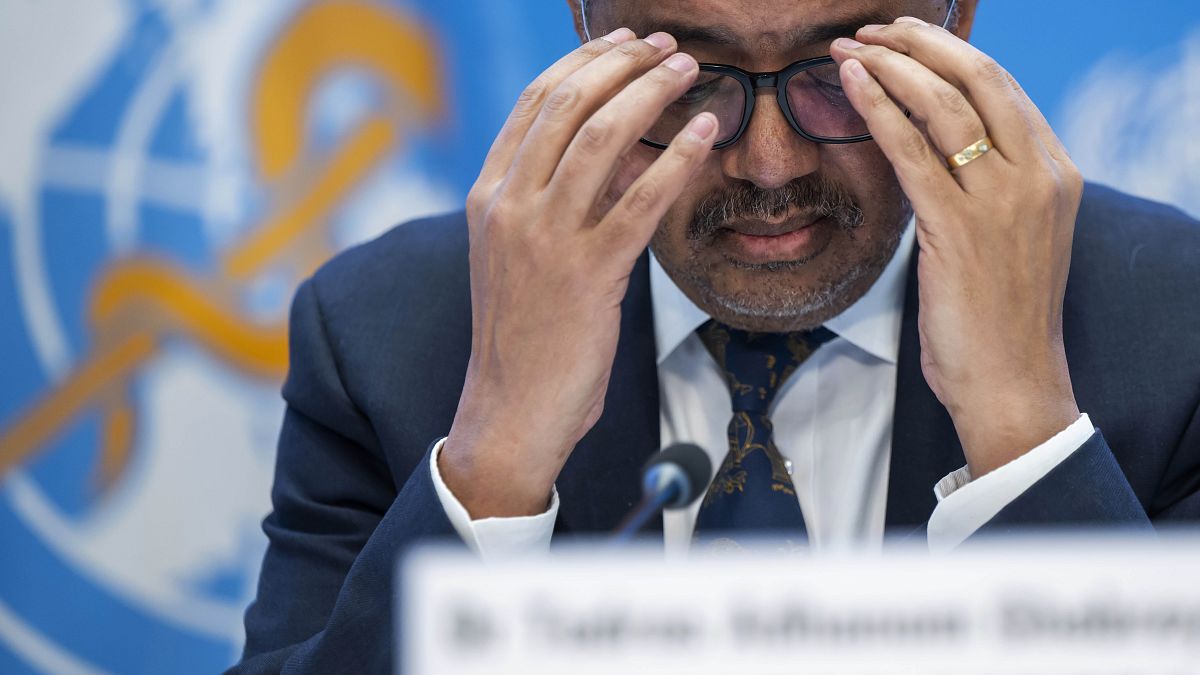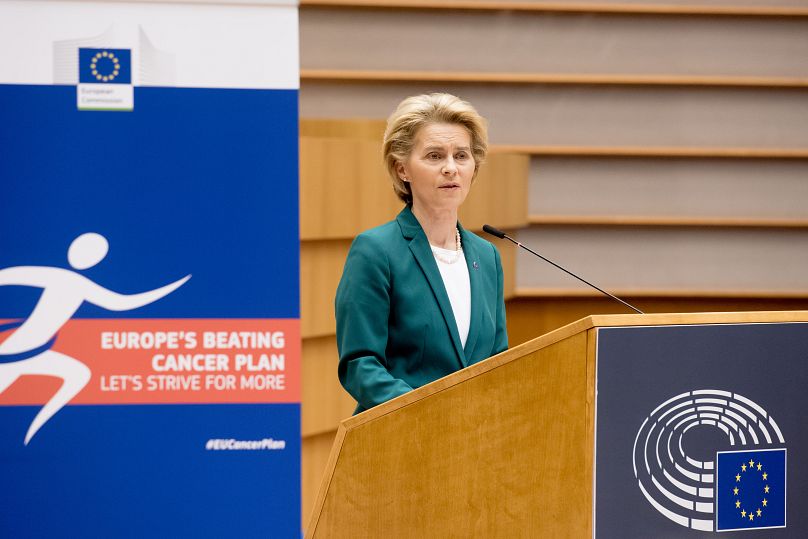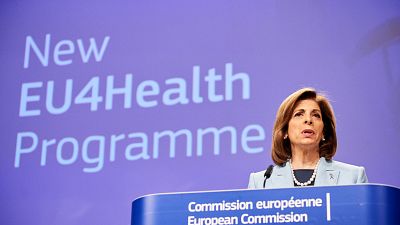World Health Organisation (WHO) claims scientifically proven link between alcohol and cancer downplayed by MEPs in recent resolution, and is not prepared to let the matter go.
A non-binding European Parliament resolution late last year on non-communicable diseases such as diabetes and cancer has sparked the ire of the UN-backed health body and garnered a strong response.
The main source of irritation for the WHO is that in the resolution European lawmakers warned only against alleged ‘harmful use’ of alcoholic beverages, which the WHO sees as tantamount to accepting the existence of safe levels of alcohol consumption.
“In the context of cancer prevention and of this specific report, the terminology ‘harmful consumption of alcohol’ is scientifically inaccurate,” Dr Carina Ferreira-Borges, regional adviser for alcohol at WHO/Europe, told Euronews.
Alcohol was classified by the WHO's designated cancer research body - the International Agency for Research on Cancer (IARC) - as a carcinogen as early as 1988, grouping it with substances such as tobacco and asbestos.
“And the evidence is clear and substantial: alcohol causes more than 200 diseases and injuries, including leading causes of deaths such as cardiovascular diseases and cancers,” Ferreira-Borges added.
Alcohol use has been causally linked by the scientific community to at least seven cancers: oral, pharynx, larynx, esophagus, colorectal, liver, and female breast.
In the final text approved by the Parliament’s plenary on 13 December, MEPs also “support the provision of better information to consumers by improving the labelling of alcoholic beverages, in particular by including moderate and responsible drinking information.”
“But it is well documented that a ‘responsible’ or ‘moderate’ drinking messaging is ambiguous, not effective, and often used by the alcohol industry for advertising campaigns,” said the WHO expert.
The resolution was passed by the Parliament despite the WHO and IARC signing and sending a joint statement (6 November) seeking changes to the wording on the eve of a crucial committee vote, and addressing a letter to MEPs - leaked to the press - asking them not to dilute references to alcohol cancer risks in the final text.
At the beginning of 2023, the United Nations specialised agency also issued an advisory note to policymakers warning that no level of alcohol use is safe for health.
Europe's Beating Cancer Plan at risk?
Another “worrying” element of the agreed text is its omission of health warnings on labels of alcoholic beverages, according to Ferreira-Borges, since these are considered by the WHO as an important policy option to provide consumers with clear and accessible information about the health and safety of the products they buy.
The flagship initiative of Europe’s Beating Cancer Plan unveiled by the Ursula von der Leyen Commission in February 2021 envisaged a legislative proposal for mandatory labelling of health warnings on alcoholic drinks to be presented before the end of 2023.
However, no such proposal has yet been put forward, nor does any initiative appear in the EU executive's pipeline for the coming months.
“Replacing health warnings with 'moderate' and 'responsible' drinking information might be seen as a signal that the European Parliament does not necessarily stand behind the Cancer Plan,” said Ferreira-Borges.
The European Commission will hold a high-level conference at the end of January to take stock of the implementation of the Beating Cancer Plan.
“While the Parliament’s reports and resolutions are not binding, there is a concern about this lack of alignment [with the plan],” she added
In the leaked letter to MEPs, Hans Kluge, Europe’s regional director of the WHO, registered "increasing concern" over the implementation of the EU Beating Cancer Plan, given how the initial strong commitments "have slowly eroded in various documents”.
A 'growing concern' in the public health community
The WHO made its interventions on the resolution at the request of MEP Sara Cerdas (S&D, Portugal). “It was a great disappointment for me as a medical doctor in public health to see that this report did not stand with the latest evidence when it comes to alcohol consumption,” she told Euronews.
She pointed the finger at the “hypocrisy of some political groups that say they want to beat cancer without taking a position on risk factors such as air quality, tobacco product, and alcohol consumption.”
Contacted by Euronews, the rapporteur on the file Erik Poulsen (Renew Europe, Denmark) declined to comment on the concerns raised by the WHO.
The UN agency also pointed out a “growing concern in the public health community about the proliferation of ambiguous wording in the European Parliament documents and an absence of alignment with the latest evidence in the alcohol field.”
“It is deeply alarming to observe MEPs supporting the alcohol industry's narrative, championing terms like “moderate consumption and responsible drinking”, said Florence Berteletti, secretary general of the civil society organization Eurocare which deals with alcohol-related harm prevention.
She added that what happened with this resolution raised “profound concerns about MEPs prioritising industry interests over the health of their constituents, eroding confidence in EU politics, and casting doubt on their integrity.”




